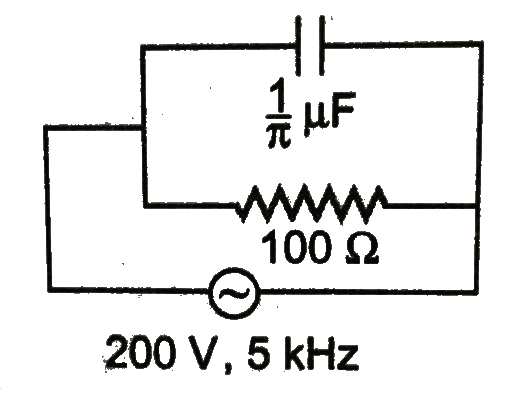Choose the wrong statements (s)
Viscous force always supports the motion
A denser fluid is always more viscous than a less dens fluid .
Any object cannot have a velocity after a sufficiently long time more than its velocity in a given fluid .
If a body is at rest in a fluid then the viscous force on it is zero
The correct Answer is:A
To solve the question of identifying the wrong statement(s) from the provided options, we will analyze each statement step by step.
1. Analyze Statement A: "Viscous force always supports the motion."
- Viscous force is defined as the force exerted by a fluid that opposes the relative motion between fluid layers or between a solid object and the fluid.
- Since it opposes motion, this statement is incorrect.
- Conclusion: This statement is wrong.
2. Analyze Statement B: "A denser fluid is always more viscous than a less dense fluid."
- Viscosity is a measure of a fluid's resistance to flow. While denser fluids can often be more viscous, this is not a strict rule; there are exceptions (e.g., honey vs. water).
- However, in many common cases, denser fluids tend to have higher viscosity.
- Conclusion: This statement is generally considered correct, but it is not universally true.
3. Analyze Statement C: "Any object cannot have velocity after sufficiently long time more than its velocity in a given fluid."
- This statement refers to terminal velocity, which is the constant speed that a freely falling object eventually reaches when the resistance of the medium prevents further acceleration.
- According to the concept of terminal velocity, an object cannot exceed this velocity in a fluid.
- Conclusion: This statement is correct.
4. Analyze Statement D: "If a body is at rest in a fluid, the viscous force on it is zero."
- According to Stokes' law, the viscous force F is given by F=6πηrv, where v is the velocity. If the body is at rest, then v=0.
- Therefore, the viscous force will also be zero when the body is at rest.
- Conclusion: This statement is correct.
Final Conclusion:
- The only wrong statement among the options is Statement A: "Viscous force always supports the motion."
- Viscous force is defined as the force exerted by a fluid that opposes the relative motion between fluid layers or between a solid object and the fluid.
- Since it opposes motion, this statement is incorrect.
- Conclusion: This statement is wrong.
- Viscosity is a measure of a fluid's resistance to flow. While denser fluids can often be more viscous, this is not a strict rule; there are exceptions (e.g., honey vs. water).
- However, in many common cases, denser fluids tend to have higher viscosity.
- Conclusion: This statement is generally considered correct, but it is not universally true.
- This statement refers to terminal velocity, which is the constant speed that a freely falling object eventually reaches when the resistance of the medium prevents further acceleration.
- According to the concept of terminal velocity, an object cannot exceed this velocity in a fluid.
- Conclusion: This statement is correct.
- According to Stokes' law, the viscous force F is given by F=6πηrv, where v is the velocity. If the body is at rest, then v=0.
- Therefore, the viscous force will also be zero when the body is at rest.
- Conclusion: This statement is correct.
- The only wrong statement among the options is Statement A: "Viscous force always supports the motion."
Similar Questions
Choose the wrong statement (s)
View SolutionChoose the wrong statemnt
View SolutionChoose the wrong match
View SolutionChoose the wrong pair
View SolutionThe wrong statement is
View SolutionChoose the wrong statements with reference is human inner ear
View SolutionFigure shows a siphon. Choose the wrong statement.

(p0 = atmospheric pressure)
View SolutionChoose the wrong match.
View SolutionA signal generator supplies a sine wave of 200V,5kHz to the circuit shown in the figure. Then, choose the wrong statement.
 .
.
View SolutionA signal generator supplies a sine wave of 200V,5kHz to the circuit shown in the figureure. Then, choose the wrong statement.
 .
.
View Solution
